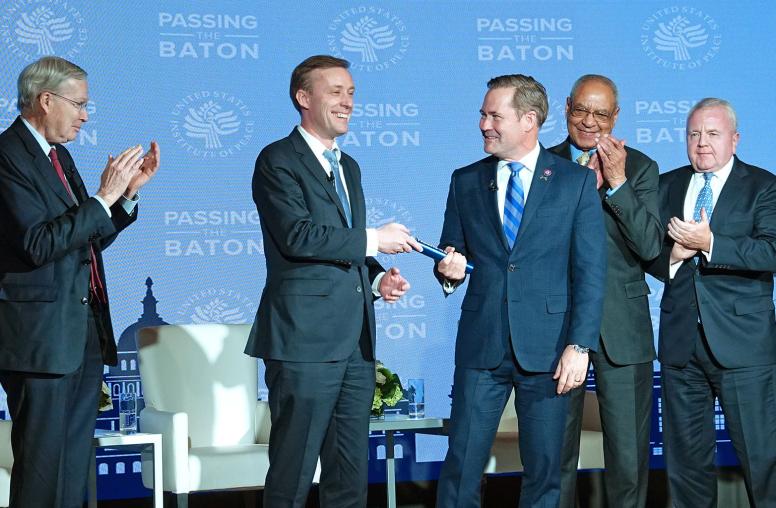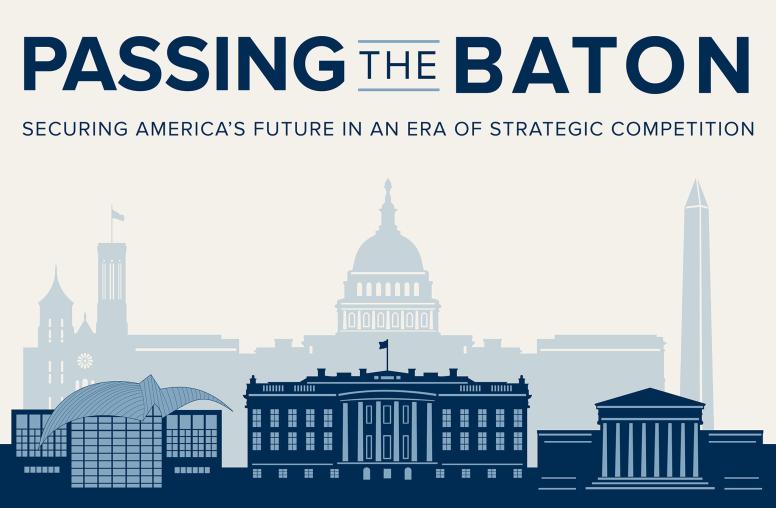Don't Just Blame the Intelligence Community for Failing to Foresee 9/11
Roy Gutman, Institute Senior Fellow, explores the failures of the foreign policy community and press in foreseeing the 9/11 attacks in an Institute Newsbyte.
WASHINGTON—Roy Gutman, a correspondent in Newsweek's Washington bureau and a senior fellow at the U.S. Institute of Peace, recently returned from a research trip to Afghanistan and Pakistan, where he interviewed Pakistani officials, former Taliban supporters, journalists, and NGO representatives about al Qaeda infiltration of the Taliban and the record of human rights violations during the civil war. He spoke recently on the gaps between what is now known about Afghanistan before September 11, 2001, and how journalists, policymakers, and human rights advocates perceived the situation at the time. This Newsbyte summarizes Gutman's remarks.
When operatives of Osama bin Laden piloted commercial airliners into the World Trade Center and the Pentagon on September 11, 2001, members of Congress and the general public drew the logical conclusion that U.S. intelligence had failed, as had counter-terrorism policy and, in a larger sense, defense policy. But there was another element to the story. Over-arching the catastrophe of 9/11 was a cluster of failures—primarily in foreign policy and in journalism—that centered on the state from which the attacks were directed—Afghanistan.
The foreign policy failure had two elements. One was the failure to perceive, in the aftermath of the Soviet Union's collapse, that there was a vacuum in Central Asia, just as there was in East Central Europe and the Balkans. As is clear from the collapse of the Ottoman and Austro-Hungarian empires a century ago, the demise of a security structure leads to a security vacuum. And if no major power fills it quickly, local and regional political players try to fill it in their own competitive ways, leading to aggression, resistance, and war. This is what happened in Afghanistan in the 1990s.
The second policy failure was to view Osama bin Laden's rise as an issue for the State Department's Office of Counter-Terrorism—and turning over U.S. policy for Afghanistan to that office, while seeing the security vacuum in the rest of Central Asia as a U.S. defense issue, and giving responsibility for that policy to the U.S. Central Command (Centcom). As instability continued in Afghanistan, and fears grew that Islamic insurgency would spread, Central Asian countries, starting with Uzbekistan, wanted a U.S. presence. Centcom was only too eager to begin joint exercises, and to start developing a joint approach to security with those states. But U.S. diplomacy did not see the interaction between Central Asia and Afghanistan. Dealing with Afghanistan only as a counter-terrorism issue meant that there was a policy for bin Laden—find him and kill him or lean on Pakistan to do so—but not for Afghanistan, which provided the environment in which he could rise to international prominence.
Journalists also failed to connect the dots between Afghanistan and the region. Sometimes in a period of enormous, unpredicted change—such as the collapse of an empire—if no one else can figure things out, the news media help define the new era. And while it might be argued that the media as a group did a reasonable job in defining what was at stake in the Balkan conflict long before governments were willing to acknowledge it, Afghanistan was a different story. In the confused period of 1992-96, when different mujahdin groups vied for power—all proclaiming fundamentalist Islam but each in turn proving to be incompetent in governance—the lack of outside attention would be understandable were it not for the fact that tens of thousands of civilians were killed in Kabul as competing factions took aim at each other, with the United States watching from the sidelines. The media failed most acutely in the period after 1996, when the Taliban took control of Kabul.
As is often the case, there were several stories going on simultaneously. With encouragement from the Clinton administration and women's groups, the media focused on the most egregious human rights violations, chiefly the mistreatment of women. What they failed to do was focus on the war between the Taliban and the Northern Alliance, which was characterized by massive and systematic humanitarian law violations in Mazar e Sharif, Bamian, and Shamali as the Taliban moved north. Thousands of non-combatants, mostly Hazaras adhering to the Shia branch of Islam, were executed simply because of their ethnicity or religious beliefs. In an October 1998 report, the UN special rapporteur for human rights, Choong-Hyun Paik of South Korea, estimated that 5,000 to 8,000 had been killed, all civilians, or soldiers who had surrendered to the Taliban after they took over Kabul, a city of a half million. These developments went largely unreported.
The media and governments were not alone in their failures. The United Nations, which stepped into the breach in the absence of U.S. interest in Afghanistan, also failed to intercede in a timely way. Lakhdar Brahimi, the special representative of the secretary general, suggested to the Taliban that there be an international investigation into what happened in 1997.
A lesson of U.S. policy in Afghanistan is that Afghanistan is in many ways the fulcrum to the region's future. It is certainly the bridge between Pakistan and India and the markets of Central Asia, and the connection between the mineral resources of Central Asia and the markets of Pakistan and India. The media should report on this region with the attention span and level of detail they devote to the Middle East. Also, deputy secretary of state Richard Armitage's recent trip to India and Pakistan may indicate that the U.S. government has learned a lesson. The United States is playing a role in the Indo-Pakistani rapprochement now underway, even if the best American newspapers and magazines do not cover the story. Judging from the absence of reports on the rapprochement, the American media appear not to have learned the lesson of 9/11.
Roy Gutman is a Newsweek correspondent and director of American University's Crimes of War Project. His Pulitzer Prize-winning coverage of the 1993 war in Bosnia and the ethnic cleansing campaigns provided the first documented reports of concentration camps during that war. He has continued to serve as a watchdog on human rights and war crimes issues in Afghanistan. He was part of a team of reporters in August 2002 who were the first to cover comprehensively the story of the Northern Alliance's war crimes, particularly the infamous "death convoy" used to transport Taliban prisoners. The views expressed here are not necessarily views of the Institute, which does not advocate specific policies.



